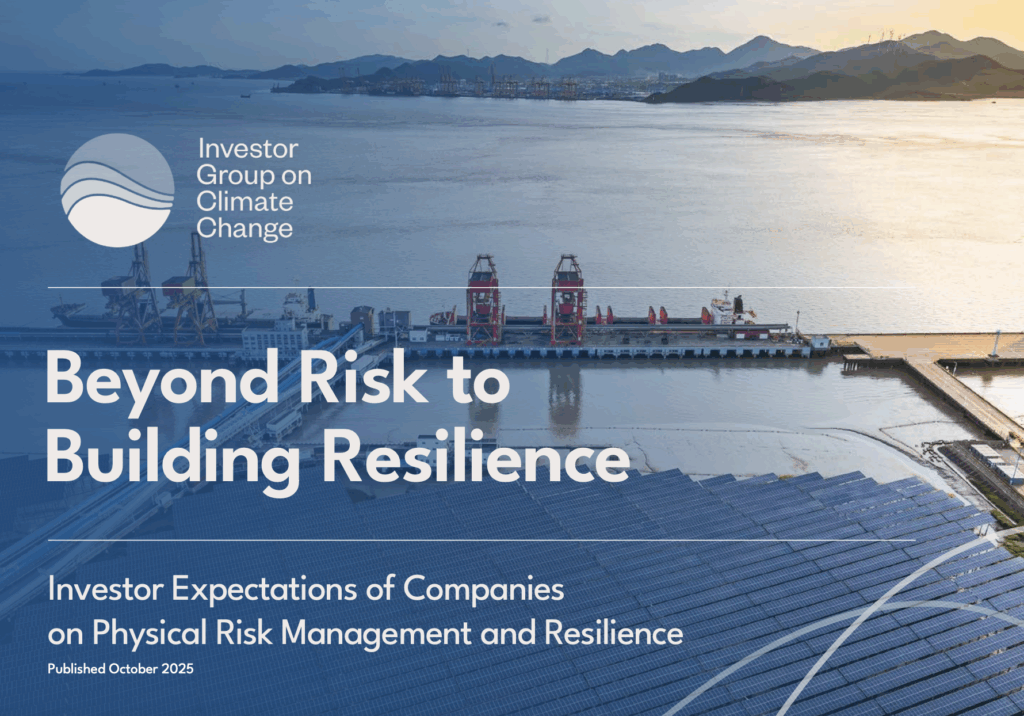From Risk to Resilience: What Investors Expect from Companies on Physical Climate Risk
13 October 2025
As climate impacts intensify, investors are calling for stronger corporate action to assess, manage and disclose physical climate risks. IGCC’s Investor Expectations of Companies on Physical Risk and Resilience report sets out clear guidance on how boards and executives can strengthen governance, strategy and transparency to build climate-resilient businesses.

As the physical impacts of climate change intensify, investors are demanding stronger action from companies to assess and manage climate-related risks.
IGCC’s latest report — Investor Expectations of Companies on Physical Risk and Resilience — outlines what investors want to see from boards, executives and disclosure teams.
Key points:
-
Physical risks are financial risks: Extreme weather and chronic climate shifts are already eroding asset values and disrupting supply chains — companies must treat these as core business risks, not sustainability issues.
-
Investors expect board-level oversight: Governance of physical climate risk should sit clearly with the board, with clear accountability and capability to oversee resilience strategies.
-
Integration into strategy and risk management: Companies should map and model physical risks across assets and operations, integrate findings into financial planning and capital allocation, and disclose adaptation actions taken.
-
Transparent disclosure matters: Investors want clear, comparable data on how companies are assessing risks, prioritising material exposures, and measuring resilience outcomes — aligned with TCFD/ISSB standards.
-
Resilience is an opportunity: Strengthening adaptation strategies can help protect long-term value, secure insurance, and maintain investor confidence in a more volatile climate.
Why it matters:
With mandatory climate reporting on the horizon, companies that proactively manage physical risks will be better positioned to attract capital, maintain market confidence, and support an orderly transition to a resilient net zero economy.
Read now